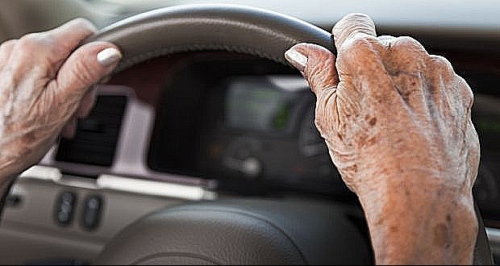Many adult children must face a changing reality and confront their own anxiety and grief as their parents lose strength and independence. When this happens many have defined the period as one of the most emotional moments of their lives. One very sad time during a parent’s aging process is when their children have to ask them to hand over their car keys.
Just the facts
According to the Insurance Institute for Highway Safety, seniors age 80-plus have the highest rate of fatal car crashes per mile driven. Accidents caused by the elderly are typically attributed to vision or hearing problems, reactions to medications, or not being quick-on-the-draw when maneuvering a motor vehicle.
Despite warnings from concerned loved ones, many seniors continue to putter around town in their cars, even though they know that surrendering the keys would be the smartest and safest thing to do.
Driving for many elderly folks means freedom, independence, employment, fun, and spontaneity. So how can anyone inform their beloved senior that the car keys are being taken away because they can no longer safeguard themselves on the road?
Conversation is key
As medical advances allow for increasingly long lifespans, it’s important that we prepare ourselves for having conversations that center around safety and driving with our mothers, fathers, aunts, uncles, grandparents and even elder siblings. Here are some tips on how to tell the older driver in your life that it’s time to permanently exit from the driver’s side of a vehicle:
1) Always be positive. Don’t beat someone over the head with doom and gloom forecasts like “You’re going to kill yourself and give me a coronary if you don’t stop driving!” Forget about being condescending or preachy, as sermons typically fall on deaf ears, unless you’re in a spiritual setting — and even then, it’s a crap shoot. Instead, if your senior can still manage to get around in their car with no drama, suggest that they scale back their driving gradually — for example, by only going out in daylight and avoiding highways.
2) If your senior is a bit of a penny pincher, run some numbers on their behalf. Then show them just how cost-effective it would be to take public or senior transportation instead of maintaining a car. Gas, insurance, and maintenance can gobble up retirement savings lickety-split.
3) Make your senior’s doctor, the fall guy (or gal). Depending on where you live, some doctors can contact the Department of Motor Vehicles to report on a patient’s driving abilities. Visit SeniorDriving.AAA.com to see if you live in one of those states. Tattling on a person’s driving by a physician can trigger a review of their skills, including re-testing.
4) If you can manage it, shuffle your busy schedule to shuttle your elderly loved one around town as often as possible. Your senior will relish the time spent in your company well, hopefully, and your worries about their driving skills will be put to rest.
Words to live by: Allow the senior in your life to retire from the road with dignity and grace.











